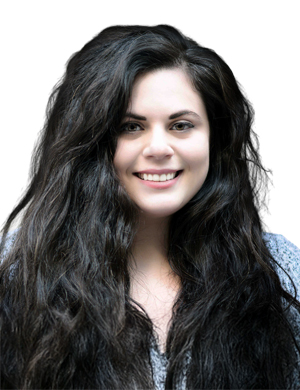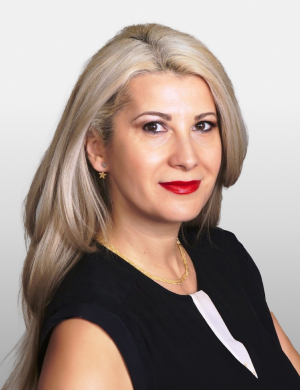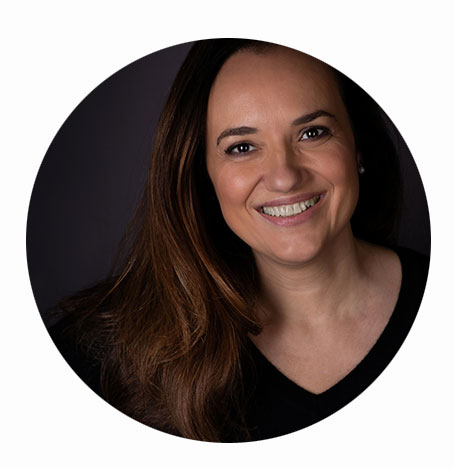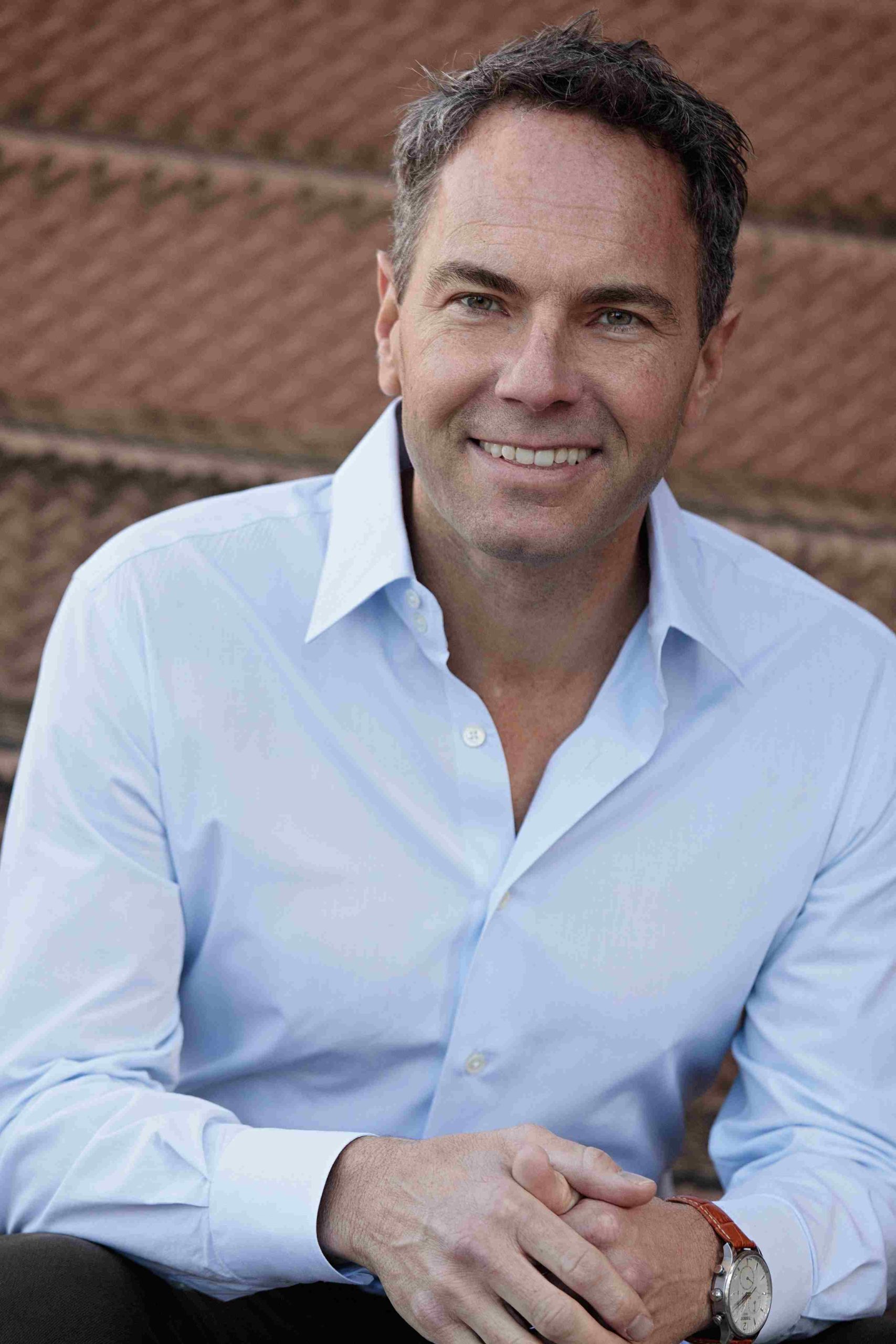Lara Schmoisman (00:11)
Hi guys, welcome back to coffee number five. Are you ready for it? Because I know I am and I’m just so pumped up. mean, we had a free recording that, ⁓ I know that this one is going to be fantastic. So I want to talk one of about my favorite topics that you know, that is content with intention, that I believe anything we do in marketing, everything we do in life needs to be with an intention. And also,
As you all know, the search engines are changing too and the search is by intention too. So let me welcome to Elizabeth Robillard. Welcome, welcome, welcome. Good. I’m very good. And I’m so happy that you’re here because you have a very special role at ETel and it’s about creating that content.
Elizabeth Robillard (01:00)
I do.
Lara Schmoisman (01:04)
And the content that is going to be getting people to talk and not only to talk at the event, you are the one who are helping set up trends of what people are going to be talking for a long, long time, which is fascinating.
Elizabeth Robillard (01:18)
Absolutely, absolutely. Yeah, so my role just to kind of give you a full picture of what I do. ⁓ Basically, I work on ⁓ our company WBR, just I’ll step back even further. We’re both a market research company and an events company. So basically, we do research with folks in different industries. We’ll take ETAL for an example, the event that I work on. ⁓
Lara Schmoisman (01:31)
Okay.
Elizabeth Robillard (01:43)
We will reach out to folks in the industry, so anyone who’s a digital marketer, anyone who works in e-commerce, and just try to get a picture of what their current challenges are, what their opportunities are, what technology they’re using, what they see as being trends that are coming down the pipeline in the next year or so. Basically, we use that research, which is usually about 60 to 80 calls, and that ends up…
⁓ being the topics that you see on our programs, on the ETAL program in particular for me. So I take everything that I hear and I turn it into topics on the program and basically sort of set the agenda for the events. We wanna make sure that we’re really getting to the heart of what everyone’s talking about, what everyone’s thinking about. ⁓ And then we invite folks in the industry to come in and talk on those topics and really kind of get to the heart of that content. We really wanna make sure that
The event is built by the industry for the industry. And when folks come to the event, they can really get those takeaways that they need for.
Lara Schmoisman (02:44)
And this is so challenging
because it’s so time sensitive too. Cause I know that you’re doing a research like way in advance, like right now, probably you’re already planning for Palm Springs for next year. And, and we’re doing the research and even talking about, and this it happened in, in a conference that I was part of.
Elizabeth Robillard (02:50)
It is.
We are.
Lara Schmoisman (03:07)
And that we, I was in a panel with the brand that they seem to be doing really well. And by a couple months after that conference, it’s so that it wasn’t doing really well anymore. So it happened. How do you mitigate that risk?
Elizabeth Robillard (03:24)
That’s a really great question. I can actually think of one perfect example that we’re all living in right now in the world of retail. Of course, right now when I’m doing research for Palm Springs for 2026, I’m hearing a lot about tariffs and market volatility and what’s kind of happening in that zone. ⁓ Obviously,
Lara Schmoisman (03:37)
Mm-hmm.
Elizabeth Robillard (03:42)
We can’t really know where we’re gonna be in 2026 with all of this, where things will shake out. What we do know is that there’ll be a lot of lessons learned from this time period and a lot of things that people have been forced to do.
A lot of different ways people will have sort of rethought about how to exist and what their businesses look like during these times of volatility. And that’s evergreen, right? That’s always gonna be something that businesses need to think about. So we always kind of try to take a little bit more of that 30,000 foot view, especially for our keynote topics, really just to make sure that ⁓ even if it is something timely, that it kind of has an ever present. ⁓
take away from it. So that’s kind of a real life example that I’m dealing with right now.
Lara Schmoisman (04:27)
Well, it’s like, will say
we went through COVID, but lessons that we learned through COVID that we can be prepared next time. I remember that prior COVID.
Elizabeth Robillard (04:35)
Absolutely, absolutely.
Lara Schmoisman (04:39)
I used to lay out and I still do somehow for my clients, strategy as a whole year, or I know the certain promotions I want to have, or we know like, of course, 4th of July, you have certain things that they are there and you cannot change them. The rest is more like a playground. But I was planning way ahead of time and I realized that I cannot do this anymore because it’s evolving.
And I think also from COVID times to now, technologies and platform change a lot. And so we don’t know what platforms we’re going to be using in three months. We need to be evolving with the ecosystem. And I think it’s been happening a lot faster since then.
Elizabeth Robillard (05:14)
Absolutely.
Absolutely.
I
would totally agree with that. Another thing that’s kind of coming up, as also kind of a post-COVID thing, is the fact that there had been a lot ⁓ of growth and lot of investment. There had been some decent years for folks the past four or five years. And now we’re sort of seeing a little bit of a…
a downturn, would say, or at least sort of uncertainty and people aren’t sure how things are going to go. But there was such an explosion of investment in new technology during that time period. And now people are kind of having to rethink, maybe audit what they’ve sort of put in place, streamline things a little bit. So ⁓ yeah, that’s something that we’re sort of seeing as well. ⁓ There is new and new platforms are coming up every day still. There’s new vendors coming into.
Lara Schmoisman (06:11)
Yeah, and
Elizabeth Robillard (06:12)
for new startups.
Lara Schmoisman (06:12)
you guys also have this like duality that in one side you’re doing content, but in the other side, you are like a marketplace for technology. So how you can mix both of them or how do you choose certain technology to be part of your panels or not?
Elizabeth Robillard (06:21)
Yeah.
Yeah, that’s a great question. think our goal is always to put the content first and foremost. That’s one of the things that we sort of really push ourselves towards. We want to make sure that our content is sort of the shining star of the event. So we are very particular about which kind of providers sort of mesh well with which content. We want to make sure that ⁓ solution providers who are going to get on stage.
⁓ really are able to speak ⁓ genuinely to the content that we have. So usually it’s content first and sort of company second. So that’s kind of how we make sure that we’re getting the right players to talk about the right things.
Lara Schmoisman (07:12)
Let me ask you a question. because I’ve been in it at ETEL and Palm Springs. I know that you have ETEL Boston and London. ⁓ Also, how you what’s the difference from one coast to a different coast or even in the other side of the world in London? ⁓ What’s the difference of the events? Why you feel like need that you need to have different events or they have different
Elizabeth Robillard (07:33)
Yeah.
Lara Schmoisman (07:39)
⁓ Focus on
Elizabeth Robillard (07:41)
Yeah, that’s a great question. ⁓ I’ll start out by saying each event does get its own research cycle. So every time we’re doing any event, whether it be Boston, whether it be Palm Springs, whether it be London, we also do an event in Toronto as well. ⁓ Each one is getting fresh new research done depending on the time of year that it’s taking place. So each event will have a different bit of content that it’s sort of working off of. I will say ⁓ coast to coast, the two bicoastal events, very difficult.
in an audience type. get for the most part California folks and sort of West Coast people that are coming to the Palm Spring show. And then the Boston show does lean pretty heavy East Coast, especially Northeast as well. ⁓ I’ll say the Boston show tends to feel a little bit more, a little bit more academic, a little bit more data focused, a little bit more sort of like analytical.
Lara Schmoisman (08:33)
You just say sweet words to me
Elizabeth Robillard (08:37)
Well, it’s funny, you we’ve got Harvard nearby, we’ve got MIT nearby, so it just kind of ends up feeling a little bit more technical at the Boston show. And then Palm Springs, obviously, very buzzy, very brand-driven. You know, both have their benefits, but they do end up having a really different feel to them just sort of ⁓ by the benefit of their location.
Lara Schmoisman (08:45)
Yeah.
There are some questions that I need to ask because now with the wall situation and the tariffs, I feel like the wall is getting a little more subdivided than before when it’s easier to send products from one country to another. Do you see or perceive this as this will be a challenge for the events?
Elizabeth Robillard (09:01)
Yeah.
Bye.
Absolutely. It’s definitely anytime there’s any sort of change to the way, you know, retailers are having to do business. We definitely see an impact on the event. know, conferences can be a challenging industry to work in. COVID was an interesting time for us as a live events business. But our goal is always really to make sure that we are there to be a place where
Lara Schmoisman (09:39)
you
Elizabeth Robillard (09:47)
retailers
can come to get answers for those questions. know, there’s so many questions that they have right now, especially about tariffs, especially about kind of what’s going on, and they want to be able to network with other retailers who are going through the same thing. Just kind of make sure that, you know, they can learn that they’re not alone and kind of what people are doing. Everyone’s doing something a little bit different, ⁓ but there’s no…
Lara Schmoisman (10:10)
I want
to clarify that when you say retailers, we’re not only talking about the Walmarts of the world, we’re talking about day to see and anyone who sells online.
Elizabeth Robillard (10:18)
Yes.
Absolutely, absolutely. Yeah, so we’re about, that’s a good point. We’re about 50-50 retailer and brand. So yeah, both are part of the mix.
Lara Schmoisman (10:31)
Yes.
So you have a lot of companies that they’re coming and they’re doing basically the same thing or they have the same offer offering. How do you feel? Because also there is a networking, like you mentioned, how do you feel like how companies get along? How is the competition there?
Elizabeth Robillard (10:40)
Mm-hmm. Yeah.
That’s a really, really interesting question. Usually we don’t get a ton of, we don’t have a ton of drama with that. You’d think you would, but with, ⁓ you know.
We’ve had maybe one or two I can think of in my head in the past, retailers who maybe didn’t want to sit with a competitor retailer on a panel, ⁓ or someone who was a little bit shy, didn’t sort of want to spill their secrets. But I would say this group is really interested in general and just kind of bringing the industry forward. A rising tide raises all boats. So I feel like this industry is one that is really into sharing, networking. That’s a huge part of the event.
And there’s not really any animosity or a huge amount of competition that comes from anybody in that regard. It is kind of special in that way because it’s not the case in every industry.
Lara Schmoisman (11:40)
So.
Something else I need to ask because
I was even told, well, you really don’t need to go to Ittle. There are a lot of events that they happen around Ittle. And I cannot disagree because one of the reasons I go is because of the content. So what is this culture of having events on the side of the events and how the event planners feel about this?
Elizabeth Robillard (11:53)
Yeah.
Yeah.
Yeah.
That’s a great question. It’s sort of new for us.
⁓ to experience some of those events outside of the event. I know exactly what you’re talking about. I think in our world, we’re trying to ⁓ welcome that a little bit more. We’re trying to work a little bit more with the folks who are kind of putting on some of those outside events. ⁓ You we love it when people are enthusiastic about meeting with our audience. ⁓ And we want our attendees to be able to have the best experience possible. So if someone’s having a fantastic party and our attendees are able to go.
Amazing. We’re never going to fight that, but as long as folks are willing to work with us and kind of partner with us a little bit more, we think that’s great. So we’re super open to that. we kind of love, we had a lot of great media partners at the Palm Springs event that threw some fantastic parties. I know we’re going to have some at the Boston show too. So that’s kind of a new world for us. kind of, you
figuring out our way through it, but it’s exciting and we love that people have that enthusiasm for the show.
Lara Schmoisman (13:08)
Well, now this is a question that everyone to hear. What’s the trends that you’ve seen and after you’re talking with all these people. I know that we’re still early in your research, but can you share something that you see with us is AI over? Because honestly, I just feel like we talk about this and I’m a little over AI and I think we’re not putting enough attention in other things.
Elizabeth Robillard (13:11)
Mm-hmm.
Yeah.
Yes.
Yeah, absolutely. I think that’s a great point. know, one question I always ask people outside of, you know, kind of my typical what your challenges, what your opportunities are, ⁓ is what’s something that you’re kind of tired of hearing? And overwhelmingly, everyone was talking about AI when I asked that question during research, sort of knowing that it is still something everyone needs to know about. I think we’re always laser focused at detail at making sure that
And, you know, when we’re talking about AI, it’s through a really specific tactical. ⁓
Lara Schmoisman (14:00)
But also you guys
were one of the first ones trying to encourage and talking about AI when people weren’t even talking about that yet. And it was like, ⁓ they weren’t sure even going to those sessions and it was, and then suddenly everything became AI. So we think that you think we learned something about it that people weren’t in the trend and now everyone is trying to be ahead of the trend.
Elizabeth Robillard (14:09)
Yes.
It’s true.
I do, I do. I think it’s interesting. It would still, we hear about it so much, but we’re still kind of in a nascent phase of it. There’s not a lot of hugely amazing use cases that are across an entire ecosystem yet. There’s some really great bite-sized use cases of it.
Lara Schmoisman (14:48)
Okay. Can I
give you a very unpopular opinion about this? Okay. I really think that there is a challenge in the usage of AI. People don’t know how to use prompts, how to create or educate the AI. And what I’m seeing is that a lot of people want to try the platforms and then they blame the platforms for not working when there is no, I don’t think that
Elizabeth Robillard (14:51)
What is? Please!
Mm-hmm.
Lara Schmoisman (15:15)
People have been trained how to use AI. Well, we’ve been using it for a long time, at least me in my team, and that my AI is a whip. mean, I have it so trained, but it takes a lot of work to train AI.
Elizabeth Robillard (15:32)
It does, it does. And it requires, you we’ve been talking about this since the beginning, it requires clean, well-housed data. And I think the other thing that we don’t talk about is there’s even a step that you have to do before you get to the AI, which is data governance. And I think that that’s something that’s coming up more and more because people are like, ⁓ yes, we do have to focus on this, which is not a sexy topic.
Lara Schmoisman (15:48)
Yes. ⁓
in the storytelling,
I mean, I see it from the brand sides and they want, ⁓ this doesn’t feel like my brand. No, because you’re not teaching who your brand is. But a lot of people don’t even know who the brand is, what their brand voice is. The brand’s voice is all over the place and they don’t educate AI who their consumer is either.
Elizabeth Robillard (16:00)
Yeah.
Absolutely. Yes, that’s definitely something. ⁓ So yeah, AI is coming up a ton, but hopefully, we’re trying to again, make sure that it’s very use case based. I would say the other thing that’s coming up a lot, this is gonna be huge. And you and I talked about this a little bit earlier, ⁓ is just talking about discovery, talking about search. It’s a whole new world of search and where people are finding you. And for so long, we’ve been doing a search summit at ETAL for…
15, 20 years, and it was kind of a ho-hum topic for a while, because there wasn’t anything incredibly new or different, but in the past two years, things have exploded. It’s completely different. Absolutely.
Lara Schmoisman (16:56)
Well, and a lot because of AI too. ⁓
But yeah, it’s the search. I don’t think that the brands or consumers are understanding how complicated it is. you can, see, and I want your take on this from the content side, because I seen a lot of brands making the mistake of working with different companies to do SEO, to work with social media, to work with their email.
when from my point of view, they are fractionating the messaging instead of putting it all together with the same SEO strategy.
Elizabeth Robillard (17:30)
Mm-hmm.
Yeah, and it’s tough. I can understand doing that because it is everything, every channel, everything you have to do, it’s so daunting. Having to think about all of those different things and controlling your messaging at all those different touch points and being everywhere, search engine optimization, being everywhere for everybody. I don’t envy the world of
Lara Schmoisman (17:58)
Well,
you’re just, I don’t know, maybe it’s just because of how my brain works or what I’m super passionate about. But for me is like looking at the big picture and you need to go all in the big picture. You cannot fragment anymore like you used to. Like you have your strategy for Instagram and you have your strategy for Amazon. Now everything is interconnected because even Amazon can work with TikTok.
Elizabeth Robillard (17:59)
So I’ll embrace it right now.
Yep. Yep.
Lara Schmoisman (18:26)
And
we were talking about this earlier today that it takes a lot of training. And I think that there is a learning curve that many companies, they’re not giving the chance to themselves to understand. They just go into the platform. They don’t understand the foundation of why they’re doing things.
Elizabeth Robillard (18:33)
It does.
Absolutely.
And traditionally, seems like SEO and search teams have been pretty siloed and segmented from the rest of the business, which I guess made sense. But now it’s making less and less sense, given how connected everything is becoming.
Lara Schmoisman (18:56)
Mm-hmm.
absolutely. in the agency at the Darrell, we have our SEO team. All their strategies come straight from SEO. And it’s kind of reverse engineer. We know who your audience is, what they’re looking for. And then we create content specifically for them and what their search hours. And their search, are not anymore just in Google. They’re everywhere, and it’s by intention. ⁓
Elizabeth Robillard (19:33)
They’re everywhere, but at the same time, they are still on Google. So you have to still be with the traditional search, but also keep track of all the other options as well. again, kind of.
Lara Schmoisman (19:39)
Yeah, of course.
And I want to say this, that
not necessarily the same person would look in the same way in the same platform, in different platforms.
Elizabeth Robillard (19:55)
Absolutely, absolutely. I mean, yes, every customer is completely different. They’re going to want different things and they’re going to have a completely different journey and a completely different task.
Lara Schmoisman (20:05)
Exactly. even the same
consumer or customer, they’re going to go on Instagram and do a search in a different way than they would do it in Google. Because this is how they consume the media.
Elizabeth Robillard (20:15)
Yep, absolutely.
And they might do it different every time. know what I mean? They might have ⁓ one thing that they know that they really want that they go straight for. They might have something that they’re kind of hemming and hawing about. ⁓ But not every customer is going to have the same funnel. And for every purchase, the funnel is going to be completely different. It’s crazy.
Lara Schmoisman (20:39)
It is a little, well, I love it so I cannot complain about it, but I get it. I have to be a little crazy to love it. But anyway, so let’s go back to content because content to me is king, but consistency is queen and we know who rules the house. ⁓
Elizabeth Robillard (20:41)
It doesn’t feel crazy to me.
Lara Schmoisman (21:03)
So how important to you is to go over because you have a very unique audience. Your audience are professionals and your audience are brands. How do you create content and for these two different kind of audience that they come to you?
Elizabeth Robillard (21:10)
Mm-hmm.
Lara Schmoisman (21:24)
But at the same time, you know that people, need repetition. They need to understand. And when we’re talking about complex topics, what you bring in your talks are not simple answers or simple math. And there’s also marketing and platform is a lot of trial and error and see what works for one brand might not work for another brand. So how do you create that consistency and talking about similar topic or the same topic without being, ⁓ again, the same?
Elizabeth Robillard (21:53)
That’s a very, very good question. And I’ll tell you, it’s very difficult. It’s hard. ⁓ know, especially year after year, you know, really trying to keep up with what’s new, what’s different, trying to keep things balanced. You’re totally right that we have, ⁓ you know, not just…
DTC and, ⁓ you know, retailers as well, but also just every kind of possible retailer you can think of and across that whole customer life cycle as well. So we’ve got those folks that are really focused on search. We’ve got those folks that are really focused on social and we’ve got those people that are really focused on merchandising and UX. Completely different jobs that are all kind of connected, but we have to make sure that we have a little bit of content for everybody. And at every different kind of skill level, there’ll be some that are kind of just coming into.
roles or ⁓ are incredibly proficient or some people who are masters who have been doing this for 20, 25 years. So ⁓ again, it all really comes back to that research and making sure that the people that we’re speaking to represent the people that are going to be in the audience so that we can have that balance of topics and ⁓ really make sure that we’re kind of uncovering everything that matters to everybody. Again, a little bit of a daunting ⁓ job, but that’s…
Lara Schmoisman (23:08)
Yeah.
Elizabeth Robillard (23:10)
That’s our burden, I guess.
Lara Schmoisman (23:13)
When you have, mean, let’s talk about the people that they come to the event that they pay their ticket because they are interested in the education. Do you feel that they come in A with an agenda to learn something new B to meet someone else three or C surprise me or D trying to find magic.
Elizabeth Robillard (23:36)
⁓ I would say all of the above. would say E, all of the above. think folks definitely are coming for the content. They want to sit, they want to learn. Definitely a lot of folks that do that who come, have plotted out what sessions they’re going to go to because it makes sense with what they’re thinking about at the moment. There’s definitely folks who are just coming to network. E-tail’s a great place to talk with other folks, meet other folks in the industry.
Yeah, there is a little bit of magic there too though, because I think, you know, it’s magical when you sit down with someone at lunch and you’re going through some problem, you know, your email deliverability is bad and you sit down next to someone and they’re like, ⁓ actually, I just tried this. Have you tried that? Like that’s magic to me. The fact that you just randomly sat down next to somebody who happens to have a solution to your problem. So I think the people who have been to Eatail and have kind of experienced a little bit of that before might come back for the magic.
of the random encounter where you get some information that you need. So I’d say a little bit of everything.
Lara Schmoisman (24:42)
So what people can expect of going to Italy, Boston, wherever in the next few months or years. I know that in Boston you guys are having something special that is coming back maybe.
Elizabeth Robillard (24:51)
Yeah, absolutely. So, ETL Boston.
We are, we are.
Great, great reminder, great plug. So we, for the Boston show, are bringing back, kind of rebranded our awards. We used to do awards for ETAL and we have brought them back. are now the ETAL Visionary Awards. So we’re doing a award ceremony at the House of Blues in Boston, which is gonna be super fun, but we’ve got four.
Yeah, we’ve got four different categories. We’re currently accepting nominations for those different categories. ⁓ And our advisory board is going to be picking the winners that we need to gosh, off the top of my head. think best… Go to the website, go to the website. I’ve got too many things on my brain today, but yes, we do have a page on the website that has the four categories for this year’s visionary award.
Lara Schmoisman (25:31)
What are those categories? I put it on the spot. ⁓ Just go to the website that I’m sure is going to be there.
Elizabeth Robillard (25:51)
but they’re gonna be great. And we also, for the first time, are running local store tours. So we’re going to a couple of different retail locations around Boston, which has a great, couple of great big ⁓ shopping areas. We’re gonna be checking out some local stores on a tour on the first day, which is super fun.
Lara Schmoisman (26:08)
Yeah, that sounds like a lot of fun. Okay. Well, Elizabeth, thank you so much for being with us today. And it was a great chat. And to you guys, I will see you next week with more Coffee Number 5.
Elizabeth Robillard (26:15)
Yeah, thank you, Lara. was my pleasure.
